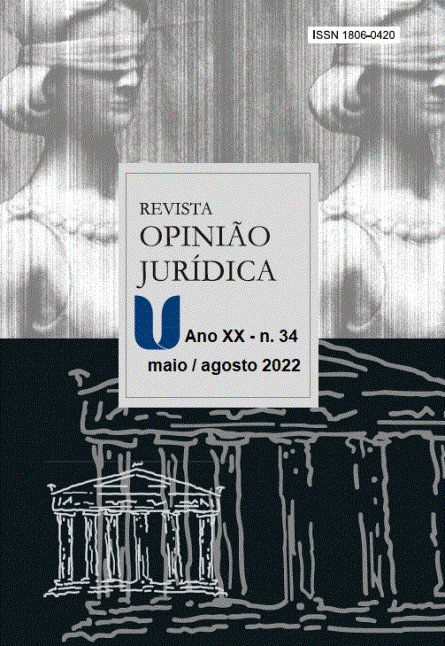ARTIFICIAL INTELLIGENCE AND LEGAL CHALLENGES
DOI:
https://doi.org/10.12662/2447-6641oj.v20i34.p180-196.2022Palavras-chave:
artificial intelligence, legislation, legal personality, legal responsibility, implementationResumo
Objective: This paper is dedicated to Artificial Intelligence and it consists in identifying the role and functions performed by Artificial Intelligence by noting the innovations brought by the introduction of this technology. Artificial Intelligence seems to be the most successful achievement of scientists today. As a result of this development and widespread use have arisen discussions on the legal regulation of Artificial Intelligence.
Methodology: The main methodological approach applied is the normative approach. The paper will be based on the qualitative method, which consists of collecting and processing data in order to compare and interpret the provisions or policies that provide for artificial intelligence. The following research methods will be applied in this paper: research method, descriptive method, comparative and analytical method, interpretive analysis method and illustrative method.
Results:There is still no proper legislative framework on Artificial Intelligence. Despite not having a consolidated legal framework, states have made the first efforts in drafting legal acts and norms governing the field of Artificial Intelligence. From the concrete analysis of existing legislative acts in many countries, we conclude that the intention of the legislator in trying to regulate the field of Artificial Intelligence arises as a result of the disadvantages of using these technologies, their widespread use and ability to influence the way of the development of many processes.
Contributions: The article contributes to the theoretical treatment of Artificial Intelligence by arguing on the problems of its legal regulation.
Downloads
Publicado
Como Citar
Edição
Seção
Licença
TRANSFERÊNCIA DE DIREITOS AUTORAIS
A submissão de artigo à apreciação da Equipe Editorial da Revista Opinião Jurídica implica, por este mesmo ato, a cessão, por parte do(s) autor(ES), para o Centro Universitário Christus – UNICHRISTUS, da referida OBRA para fins de reprodução, divulgação, distribuição, impressão, publicação e disponibilização, em qualquer forma ou meio que exista ou venha a existir, nos termos do art. 49 e os seguintes da Lei 9.610/98.
Parágrafo Primeiro. A cessão, objeto deste Termo, é feita a título não exclusivo e gratuito, abrangendo a totalidade da OBRA.
Parágrafo Segundo. A UNICHRISTUS poderá disponibilizar, para fins didáticos, a OBRA no todo ou em partes, vedada a alteração de seu conteúdo textual, ressalvadas correções e formatações que se fizerem necessárias.
Parágrafo Terceiro. A cessão é válida em quaisquer países, em língua portuguesa ou tradução, a critério da UNICHRISTUS.
DAS RESPONSABILIDADES
Ao submeter(em) artigo de sua lavra, o autor (e co-autores, se houver) assume(m), por este ato, a responsabilidade exclusiva pela integralidade do conteúdo da obra de sua autoria. Dessa forma, quaisquer medidas judiciais ou extrajudiciais concernentes ao seu conteúdo serão de sua inteira responsabilidade.
Parágrafo único. Em caso de pluralidade de autores, considera-se solidária a responsabilidade, ressalvadas as provas em contrário.































